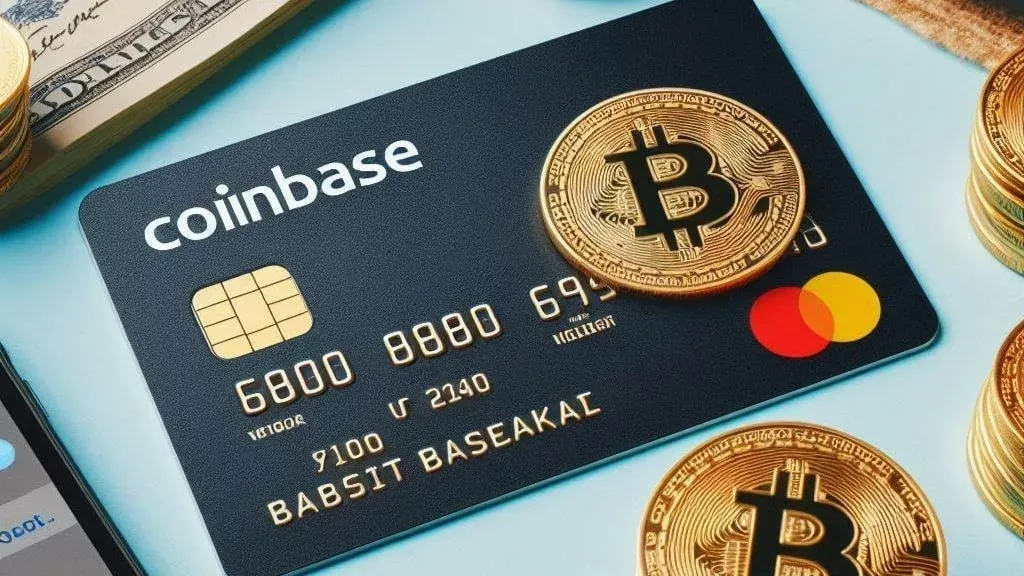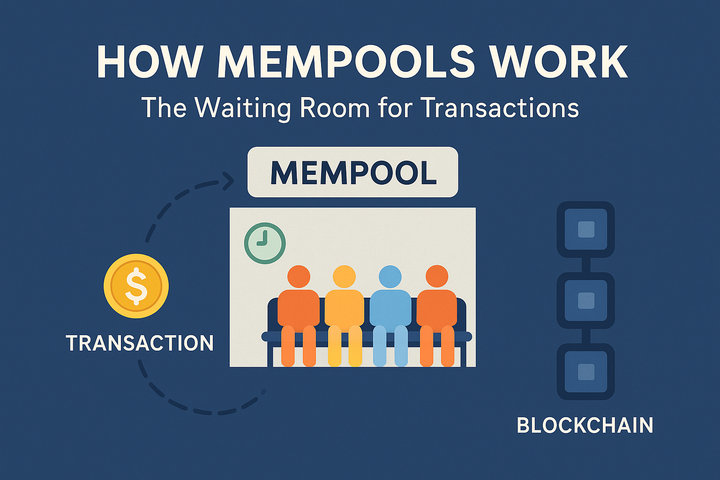Coinbase Launches Bitcoin Card with American Express

Crypto exchange Coinbase has announced a new credit card in partnership with American Express (Amex) that lets users earn Bitcoin rewards on everyday spending. Slated to roll out in the U.S. in fall 2025, the Coinbase One Card will offer up to 4% back in Bitcoin for purchases. This marks American Express’s first collaboration on a crypto rewards card with a major exchange, signaling Amex’s entry into the crypto market. In this article, we explore the card’s Bitcoin cashback program and features, discuss what Amex’s involvement means for the broader crypto industry, and outline important risks for users from volatility to fees to keep in mind.
BTC Cashback and Card Features
The Coinbase One Card is a credit card (not a debit card) that operates on the American Express network. Notably, users do not spend their crypto directly with this card; instead, they spend in fiat (dollars), and then receive cashback rewards in Bitcoin. This makes it straightforward you don’t have to worry about converting Bitcoin at the point of sale. Here are the key features of the rewards program:
- Up to 4% Bitcoin Back: Every purchase earns between 2% and 4% back in Bitcoin. The exact rate depends on how much you hold with Coinbase. According to Coinbase, “the more assets you hold on Coinbase, the more bitcoin you can earn.” Everyone starts at 2% and top-tier users can get 4%. For example, if you spend $100 on groceries, you’d get $2 in BTC at the base rate, or up to $4 in BTC if you qualify for the 4% tier.
- Coinbase One Membership Required: The card is exclusive to Coinbase One members. Coinbase One is a subscription service that offers benefits like zero trading fees and boosted staking rewards. Previously, it cost $29.99 per month, but alongside the card launch, Coinbase introduced a new Basic tier at $4.99 per month (or $49.99 per year) to make it more accessible. This cheaper tier still grants access to the card and its Bitcoin rewards, though it comes with lower trading limits on zero fees and other pared-down perks compared to the full $29.99 tier. Requiring a membership means the card isn’t free to use you’ll need to factor that subscription cost against the Bitcoin you earn.
- No Crypto Spending, Only Rewards: As mentioned, the card doesn’t pull from your crypto balances to pay merchants (which is good, because that could trigger taxable sales of crypto). Instead, it functions like a normal credit card: you receive a monthly statement in USD that you have to pay off. The Bitcoin you earn is simply a rewards currency instead of, say, airline miles or cash-back points. Coinbase deposits the BTC rewards into your account. You can hold that Bitcoin, spend or trade it on Coinbase, or transfer it out to your own wallet if you like.
- American Express Network Benefits: Because it’s on Amex, cardholders get traditional Amex protections and perks. These include things like fraud protection, purchase dispute resolution, and access to Amex Offers and other promotions similar to other Amex credit cards. The card is being issued by Cardless, Inc. and backed by First Electronic Bank under Amex’s license (so it meets standard credit card regulations and eligibility criteria). The physical card will even be a metal card engraved with a piece of Bitcoin’s origin story (text from the 2009 Bitcoin genesis block), giving a nod to crypto history a fun perk for enthusiasts who appreciate crypto lore.
In day-to-day use, the Coinbase One Card should work anywhere American Express is accepted, which includes millions of merchants. Earning Bitcoin by buying a cup of coffee or paying your utility bill is an intriguing proposition for crypto fans: it essentially automates dollar-cost averaging into Bitcoin through your normal spending. If Bitcoin’s value rises over time, those small satoshi rewards could add up. However, if Bitcoin’s price falls, the value of your rewards will drop – which is a good segue into American Express’s motivations and the broader significance, before we dive into user risks.
Amex’s Entry into Crypto – Why It Matters
American Express has historically been the more conservative of the big three card networks (Visa, Mastercard, Amex) when it comes to cryptocurrency. Visa and Mastercard have, for a few years now, partnered with various crypto companies on debit and credit card programs. Amex, on the other hand, only dipped a toe in with a crypto rewards credit card in 2022 (a niche product issued with the Abra crypto app). The Coinbase One Card, therefore, represents Amex’s first major foray into the crypto rewards space with a mainstream crypto brand.
Here’s why Amex teaming up with Coinbase is significant:
- Validation of Crypto Rewards: When a prestigious financial brand like Amex embraces a Bitcoin rewards card, it further legitimizes the idea of crypto as part of everyday finance. Amex tends to cater to a more premium customer base and has a reputation for stringent standards. By green-lighting a Bitcoin reward program, Amex is essentially saying it sees enough demand (and has done enough due diligence) to be comfortable in the crypto arena. This could prompt other traditional financial institutions who were on the fence to consider similar offerings, seeing that one of their peers is now in the game.
- All Major Networks Now Onboard: With this move, all major card networks have crypto card programs (Visa and Mastercard power dozens of exchange or wallet-linked cards, and now Amex with Coinbase). It underscores a trend: crypto is being integrated into existing financial systems rather than operating purely outside of them. For customers, it means more choice and competition – crypto debit/credit cards are no longer niche products, they’re inching toward mainstream availability.
- Amex Brand and Trust: Amex entering crypto via Coinbase provides a confidence boost for some consumers who might be curious about crypto but hesitant. They may trust the Amex brand’s consumer protections and customer service. Knowing that “this is an Amex card” could alleviate fears about the reliability or security of a crypto-related product. It essentially lowers the barrier for new people to start accumulating Bitcoin, since they can do it in a familiar way (swiping a credit card and getting rewards, as they do with cashback or airline cards).
- Coinbase’s Strategy: For Coinbase, partnering with Amex is a strategic win. It differentiates the Coinbase One Card from the numerous Visa crypto debit cards on the market. It also potentially taps into Amex’s affluent customer segment. Moreover, by requiring Coinbase One membership, Coinbase likely aims to boost its subscription revenue and user loyalty. They’re bundling trading benefits with spending rewards, trying to create an ecosystem where a user might trade on Coinbase, hold assets there, and now spend with Coinbase’s card – earning more crypto in the process. It’s an example of further bridging crypto with everyday life.
In short, Amex’s involvement signals growing acceptance of crypto in traditional finance circles. Each new partnership like this is a step toward normalizing crypto usage. It shows that even a historically conservative company (Amex) doesn’t want to be left behind in the crypto space. But while the card has appealing aspects, potential cardholders should be mindful of the risks and trade-offs.
User Risks: Volatility, Fees, and Other Considerations
Getting Bitcoin rewards on purchases is exciting, but users need to be aware of several risks and caveats before rushing to sign up:
- Bitcoin Price Volatility: The value of your rewards will fluctuate with Bitcoin’s market price. This is very different from a typical cashback card where, say, 1% cash back is just $1 per $100 spent – stable and spendable. With the Coinbase Card, you might earn $4 in BTC on a $100 purchase (if you have 4% rate) – but that $4 worth of BTC could be worth $2 or $6 a few months later. If Bitcoin experiences a major downturn, the rewards you accumulated could lose significant value. Essentially, your “savings” from card rewards are subject to crypto market risk. For believers in Bitcoin this may not be a problem (they might even expect it to appreciate), but it’s a risk to understand. You should be comfortable with the idea that the reward you earn today might be worth less when you decide to use it.
- Subscription Cost vs. Rewards Earned: Since you must be a Coinbase One member, there’s a monthly/annual fee to account for. At the Basic $4.99/month tier, that’s ~$60 per year. If your card gives 2% back, you’d need to spend about $3,000 in a year just to earn $60 in Bitcoin to break even on that fee. If you qualify for 4% back, break-even would be $1,500 yearly spend. Any spend above that starts yielding net positive rewards (assuming Bitcoin’s price stays roughly the same). For heavy spenders, this is fine, but light spenders might find the membership fee eats away most of their Bitcoin cashback. On the flip side, the membership isn’t only for the card – it also includes perks like trading fee waivers, higher staking yields, and account protections, which have their own value if you use them. Consider your overall Coinbase usage: if you were already paying for Coinbase One for the trading benefits, then the card’s rewards are more clearly profit. If you’re only subscribing to get the card, do the math for your expected spending.
- Interest and Debt Risk: It’s a credit card, meaning if you don’t pay off your balance each month, you’ll owe interest – and credit card APRs can easily be 15–25% annually. No amount of 4% Bitcoin rewards will make up for carrying a balance with interest. For example, if you spend beyond your means and end up with a $1,000 balance that you only pay off slowly, the interest might cost far more than any Bitcoin you earned. As always, credit cards must be used responsibly: ideally you pay in full and on time. The card is best for people who will treat it like a debit card (spending only what they can pay off monthly), thereby using it to accumulate BTC rewards without incurring debt.
- Tax Implications: There’s a bit of a gray area with crypto rewards and taxes. Traditional credit card rewards (points, cashback) are generally viewed as rebates/discounts, not income, so they aren’t taxed. The Coinbase Card’s Bitcoin rewards may likely be treated the same way (a rebate on spending). However, once you have that Bitcoin, if it appreciates in value and you later sell or spend it, that could trigger capital gains tax. For instance, if you earned $100 in BTC rewards and it doubles to $200 by the time you use it, the $100 gain could be taxable. This isn’t too different from cashback (if you invested cashback and it grew, you’d pay tax on gains too), but it adds complexity. You’ll need to keep track of the cost basis of the BTC you earn (Coinbase will have records, but it’s something to be mindful of come tax time). Always check the latest IRS guidance or consult a tax professional if you’re unsure. It’s also worth noting that U.S. regulators have signaled that crypto earned through promotions might be taxable as income in some cases, but credit card rewards have a strong precedent of being treated as rebates – so likely no tax on the BTC at the time you earn it. The main point is: if your BTC rewards grow and you dispose of them, be prepared for possible tax reporting.
- Exchange and Withdrawal Fees: Keeping your Bitcoin rewards on Coinbase is free, but if you decide to withdraw that BTC to an external wallet, network fees will apply. Similarly, if you one day want to liquidate the BTC to fiat, Coinbase might charge a trading spread or fee. These costs are not huge for small amounts, but they effectively could trim a bit off your rewards value. It’s not a dealbreaker but worth noting that accessing the rewards outside the Coinbase platform isn’t completely frictionless. That said, many people might just keep the rewards on Coinbase and let them accumulate (especially if they’re small amounts), potentially avoiding fees until the amount is sizable.
- Opportunity Cost and Alternatives: If you’re considering this card, also compare it to other reward cards. For example, a standard high-yield cashback card might offer 2% cash back with no annual fee at all. Some might prefer a straightforward cash reward which they could then optionally buy Bitcoin with – as opposed to being locked into BTC rewards. Additionally, some crypto cards (like certain Visa offerings) give rewards in crypto without a subscription fee. On the other hand, none of those will give 4% in Bitcoin; Coinbase’s offer is quite generous at the top tier. So, evaluate your spending, the fee, and how much you value getting Bitcoin vs cash or airline miles. If you weren’t going to use Coinbase’s other membership perks, the equation is different than for someone who actively trades or stakes on Coinbase.
- Limited Availability and Credit Considerations: Initially, the Coinbase One Card is launching for U.S. customers who are Coinbase One members. Even within the U.S., there may be some states not immediately supported due to regulatory nuances. Non-U.S. users won’t have access, at least at first. Additionally, since this is a credit card, approval isn’t guaranteed – you’ll need sufficient creditworthiness (income, credit score) to be approved by the issuer bank. Amex is known for targeting prime customers, so your credit profile will come into play. Another consideration: if you travel internationally, Amex acceptance is not as universal as Visa/Mastercard. There might also be foreign transaction fees when spending abroad (unless Coinbase/Amex clarify otherwise), which could eat into rewards. These are common credit card considerations, but worth keeping in mind if you plan to make the Coinbase Card your primary card.
In summary, the Coinbase Bitcoin Card with Amex is an exciting development bridging crypto and traditional finance. It allows crypto enthusiasts to earn BTC passively while spending as usual and signals a major traditional finance player (Amex) warming up to crypto. For beginners and veteran crypto users alike, it offers a new way to accumulate Bitcoin, effectively turning daily coffee and grocery purchases into tiny Bitcoin investments. Just be sure to weigh the costs – the subscription fee, the need to manage credit wisely, and the volatility of what you’re earning. Used smartly, the card can be a convenient tool to stack sats; used recklessly, one might end up with debt or less value than expected. As always, understanding the fine print and managing one’s finances prudently are key when stepping into this blend of the crypto and credit card worlds.



Comments ()